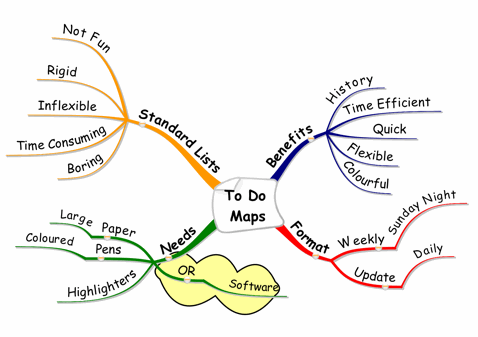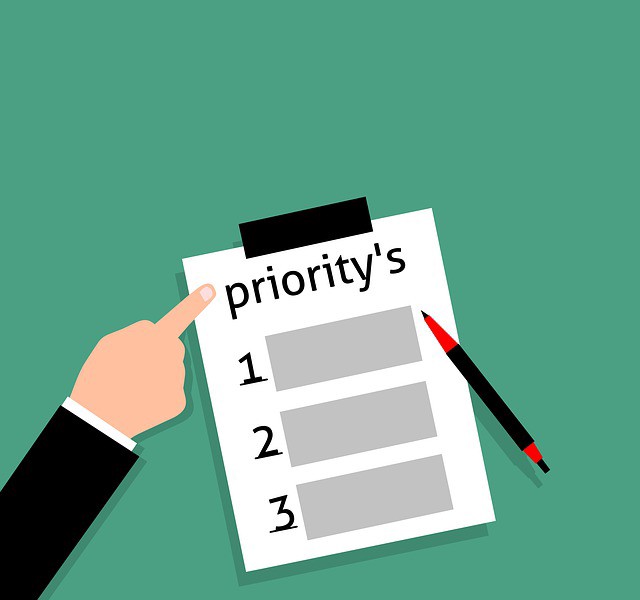7 Effective Ways to Improve Time Management Skills

This rundown of the seven effective ways to improves your time management contains everything you need in a single spot and will help you keep tabs on your development. Do you frequently get a handle on stress with an excess of work or such a large number of obligations? As time passes, your tasks seem to be more than the free time you have on your hands, and even procrastination can't help you and your question of how to improve time management.
Try to sort out your tasks and utilize your time successfully to complete more things every day. This can assist you with lowering stress levels and improve your productivity both at work and at home.
Time management skills will take some effort to create and is unique for every individual. Finding what works best will be different for everyone, but try things that you can put up in your calendar.
To answer your how to improve time management question, here are seven different ways you can improve your time management skills and increment productivity.
Time-management skills are a wide arrangement of skills that assist you with dealing with the time you spend during the workday and guarantee that it's being spent as successfully as could reasonably be expected. A couple of fundamental time-management skills and how to improve time management include:
Prioritization: This is the demonstration of allocating a degree of significance to various tasks and guaranteeing that tasks of higher significance are practiced before tasks of lower significance. Adequately prioritizing your tasks necessitates that you have a solid comprehension of how long each job you have will take you to finish. Getting skilled at prioritizing your responsibilities will likewise permit you to finish your fundamental tasks all the more effectively.
Arranging: Being ready to break down a task or a lot of tasks and build up a calendar for their fruition is basic. Compelling time management expects you to have solid arranging skills to guarantee you can create and apply a sorted out comprehension of your responsibilities while building your task plans.
Stress management: The capacity to perceive your stress levels and cause facilities inside your work to can keep your degree of stress low. Compensating yourself, appointing your tasks, and taking breaks when required permits you to remain engaged and motivated as you achieve every one of the days by day tasks on your calendar. Understanding your stress levels will likewise help you viably use breaks during your day and realize when to turn down tasks that will overpower you.
Goal-setting: Setting characterized goals for yourself all through your work, for example, achieving a particular task or a portion of a job, is a basic piece of time management. Setting a progression of reasonable goals and a progression of ideal goals permits you to feel every achievement during your time as a wellspring of inspiration and consolation. Goal-setting can work pair with stress management to assist you with expanding your productivity on an hourly and consistent schedule.
Communication: This expertise speaks to your capacity to communicate your goals, plans, and needs in verbal and written structures. All around created communication skills permit you to create productive calendars and plans. It additionally causes you to achieve your tasks all the more successfully through delegation and teamwork and this is how to improve time management.
1: Manage Stress Wisely

Stress frequently happens when we acknowledge more work than we are equipped for achieving. The outcome is that our body begins feeling tired, which can influence our productivity.
Stress comes in different structures for various individuals, yet some beneficial approaches to manage stress can include:
1. Getting outside
2. Exercise
3. Rehearsing
4. mediating
5. meet a friend
6. Listen to music
The key is to know what works for you is when you tone down your stress reactions to things. If you don't have that much energy to put yourself out there, you can try doing some breathing exercises or just do yoga and meditate. These things can be done in some minutes and can effectively tone down your stress level.
2: Start Early

Best individuals and successful peoples make do things in manner — they start their day ahead of schedule as it gives them time to sit, think, and plan their day.
At the point when you rise early, you are more quiet, inventive, and sensible. As the day advances, your vitality levels begin going down, which influences your productivity, inspiration, and focus.
In case you're not a morning individual, you can simply have a go at getting up thirty minutes sooner than your ordinary time. You'll be flabbergasted by the amount you can complete in that piece of time. On the off chance that you would prefer not to utilize it to work, use it to do a touch of the activity or have a solid breakfast. This sort of routine will likewise add to your productivity during the day.
3: Make a Schedule

Convey an organizer or note pad with you and rundown all the tasks that strike a chord. Having the option to verify things as you complete them will give you a feeling of achievement and keep you motivated.
Make an easy schedule before the beginning of the day, organize the tasks, and spotlight on the fundamentals. Ensure that these tasks are achievable, as well. On the off chance that there is a major task, you have to finish, make that the main thing on your rundown. You can push the others to the following day.
To all the more likely deal with your time management skills, you may consider making 3 records: work, home, and individual.
4: Mind Mapping

A mind map is a visual thinking apparatus – a graph that associates information around a central subject, goal, or thought. In contrast to other time management and productivity strategies, the key favorable position of mind maps is their straightforwardness – how they speak to information intently takes after how our cerebrums work.
Also, since mind mapping connects both diagnostic and creative exercises, it includes the two parts of our cerebrum, connecting with our cognitive capacities in a substantially more effective manner. Mind mapping is an excellent way of introducing information in a manner that limits the measure of time and assets it takes to look, analyze, and, eventually, get it.
5: Concentrate on the most significant/urgent tasks first

This permits optimum focus. Be that as it may, make sure to flip among high and low-consideration tasks or enjoy a smaller scale reprieve (see underneath) to let your brain recuperate from mentally-requesting exercises.
6: Assemble a schedule toward the beginning of every day

It structures what you need to complete, and you'll get a feeling of achievement as you'll see you're improving. This is particularly valuable when telecommuting as you'll be more self-trained.
7: Break tasks into little ones

If you're working at home, making espresso and strolling around for a brief timeframe revive you, but on the other hand, it's valuable ergonomically to change your stance. It guarantees optimum focus when you come back to your work area. Also, if individuals around you (partners or relatives) realize you'll be accessible later, this can constrain their interruptions.
At the point when you get clear about what's on your plate and how to improve time management, you'll be more engaged and complete more in less time. Great time management requires a day by day practice of prioritizing tasks and sorting out them in a manner that can spare time while accomplishing more. Utilize the above systems for hardly any weeks and check whether they help you. You might be amazed exactly the amount additional time you appear to have.
The difference is that we have to turn out to be better time directors independently to improve time management — to organize our formative attempts on how to improve time management. This way starts with getting some distance from the charming, convenient solutions and rather toward evaluating and building our basic time management skills before another fresh new goal arrives at its disintegration.





